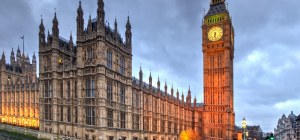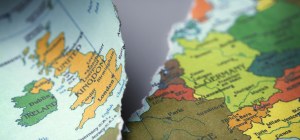57: Brexit and the Northern Irish Border – Time is fleeting, and madness takes its toll

Aaron Nelson Legal Director
The Prime Minister closed the Conservative Party conference with a speech describing a Conservative party:
‘… that is decent, moderate and patriotic. One that puts the national interest first … Above all a party of Unionism, not just of four proud nations, but of all our people. A party not for the few, not even for the many, but for everyone who is willing to work hard and do their best.’
This was, of course, directed at her own party, to encourage them to align behind her version of moderate, ‘one nation’ Conservatism. It could even be interpreted as a plea to back her personally as leader, as one ‘willing to work hard and do their best.’
But it was also directed at the DUP, to reassure them of her commitment to the Union, in the face of increasing pressure to resolve the Northern Irish border issue in the context of Brexit. It is no coincidence that, on the morning of her speech, both Scottish secretary David Mundell and Cabinet Office Minister (and the PM’s de facto deputy) David Lidington appeared in the media to reinforce the Government’s commitment to the Union, and its opposition to a ‘border in the Irish sea.’
DUP leader Arlene Foster also appeared, coining the term ‘blood red line’ to emphasise her party’s wholehearted opposition to any settlement which would place Northern Ireland in a different regulatory environment from the rest of the UK.
The UK and EU have long agreed that, as a way of maintaining the Good Friday Agreement and peace in Northern Ireland, there should be an ‘open border’ after Brexit. The Withdrawal Agreement (as yet unagreed) contains the EU’s preferred ‘backstop’ solution, which is that Northern Ireland would maintain regulatory alignment with the EU. The UK has not accepted that, because it affects the UK’s ‘constitutional integrity’, and argues that, in any event, it isn’t needed because its ‘Chequers’ proposal for a future UK/EU relationship (which includes a ‘new customs partnership’) would not create a hard border. The EU hasn’t accepted that Chequers is viable. The Government is therefore under pressure to propose its own ‘backstop’ solution.
The fundamental issue, of course, is that the Government’s headline policy of taking back ‘control of laws, borders and money’, its commitment to an ‘open Irish border’ and its commitment to the UK’s constitutional integrity are simply logically inconsistent, as we discussed almost a year ago (sometimes Brexit can feel like a time warp…)
A jump to the left, then a step to the right
So which way will the Government move now? A jump to the left, towards an EEA/Norway model? The ERG already claim that Chequers amounts to less than ‘taking back control.’ It would certainly oppose any UK-wide concessions towards greater ongoing regulatory alignment. And the PM said in her conference speech it would be ‘a deal that keeps us in the EU in all but name, keeps free movement, keeps vast annual payments and stops us signing trade deals with other countries.’
A step to the right? That would take Government policy away from aspects of Chequers, and towards the ‘Canada Plus’ agreement favoured by the ERG, David Davis and Boris Johnson. Finding a solution to the Irish border then requires a redefinition of what ‘open border’ means: automating customs checks and moving physical checks away from the geographical border have been suggested. Until now, there has been a no consensus or agreement on the efficacy of those proposals or their compliance with the Good Friday Agreement.
But the EU may have provided some room for manoeuvre here, with Mr Barnier recently suggesting that (were the backstop to apply) only live animals, animal-derived goods and food products would need to undergo physical checks at British and Northern Irish ports (although there would need to be an increase in the number of checks from the 10% which happen now):
- customs declarations could be filled in in advance, with the only physical check being the scanning of a barcode on a container, and a risk analysis of the physical need for actual checks of the goods within the container. Such checks were already common in the EU’s Union Customs Code and deployed on goods moving between Spain and the Canary Islands, and vice versa;
- VAT and excise duty contained within the customs declaration ‘would suffice’ to calculate the final payment; and
- conformity with EU standards and regulations for industrial goods could be done by ‘market supervisory authorities’ at the point of sale, and on the basis of the customs declaration already filled in.
Put your hands on your hips…
In any event, the Prime Minister will have to square up to the DUP (on which the Government relies for a working majority) and try to get them to accept some limited compromise, albeit one which maintains the UK’s ‘constitutional integrity.’
The Government could argue that this is not unprecedented: at present, Northern Ireland has different regulations in certain areas and Ireland is treated as a single entity for agricultural and similar produce. Moreover, as similar checks would be required on British exports to the Republic of Ireland and the EU, the Government could suggest passing the necessary regulations at Westminster, such that they applied to all UK ports (albeit they would most substantively affect goods exported from or imported to Northern Ireland).
Bring your knees in tight…
If the Prime Minister had an outright majority at Westminster, a solution along these lines might simply be imposed on Northern Ireland, justified on the basis that ‘as all Unionists understand, Her Majesty’s Government is the government of the United Kingdom, and must make decisions in the best interests of the whole of the United Kingdom.’
But the Government’s precarious position at Westminster means it needs to tread more carefully. It will not get Labour party support for Chequers (Labour confirmed as much at its conference last week), and so getting its deal through (assuming it can reach one with the EU) will require the support of nearly all Tories and the DUP. Can it assume that, on crucial votes, potential rebels will simply conclude that voting with Jeremy Corbyn, against the Government, is too buttock-clenchingly awful?
But it’s the pelvic thrust that really drives you insane…
Because the Government wants a deal.
As the Prime Minister indicated in her conference speech:
‘Britain isn’t afraid to leave with no deal if we have to. But we need to be honest about it. Leaving without a deal – introducing tariffs and costly checks at the border – would be a bad outcome for the UK and the EU.’
The Government’s further ‘no deal’ planning documents (all are available here) indicate that, in the event of a ‘no deal’ Brexit, extensive disruption and additional burdens should be anticipated.
In fact, it’s misleading to call these ‘planning documents’ at all, as they contain little by way of plans or measures which the government has taken or proposes to take in the event of ‘no deal.’ What little the government commits to do has already been announced – for example, the Government had already guaranteed to cover projects under the Connecting Europe Facility, the European Social Fund (ESF) and UK LIFE projects, that would have been funded by the EU under the 2014-2020 programme period.
Rather, in cataloguing the predicted extensive disruption, additional costs and burdens which the UK would suffer in the event of ‘no deal’, these documents are intended to support the view that it would be unwise (perhaps even ‘insane’) to leave without a deal.
Let’s do the timewarp again…
Enjoying the blog? Why not try our Brexit playlist on Spotify.
‘Time is fleeting, madness takes its toll… It’s just a jump to the left. And then a step to the right. With your hand on your hips. You bring your knees in tight. But it’s the pelvic thrust, that really drives you insane. Let’s do the Time Warp again.’ (Rocky Horror Picture Show, Time Warp)









